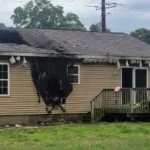TRENTON – The New Jersey Board of Public Utilities (NJBPU) pressed its foot to the figurative gas pedal in order to accelerate the electrification of the state’s building sector, July 26. Two weeks prior to the unanimous vote on the policy, the board had postponed a vote due to the surge of public comments that required review.
The board’s vote means that New Jersey utilities must now submit plans by Oct. 1 to implement a new cycle of energy efficient programs that prioritize a shift from fossil fuels to electric heat pumps, thereby significantly reducing carbon emissions from the state’s building sector.
Board President Joseph Fiordaliso said the action “sets the course for New Jersey’s energy efficiency future.” Fiordaliso also said the move will “advance the governor’s goal of electrifying hundreds of thousands of New Jersey homes and businesses by 2030.”
In February, Gov. Phil Murphy issued Executive Order 316, setting a goal for zero-carbon-emission heating and cooling systems in 400,000 homes and 20,000 commercial properties by 2030.
The NJBPU’s building electrification mandate follows a pathway set by the 2019 Energy Master Plan, which concluded that electrification is the best, lowest cost option to decarbonize the state’s homes and commercial buildings.
A number of environmental groups have praised the NJBPU action.
Doug O’Malley, director of Environment New Jersey, characterized the NJBPU proposals as “a necessary step toward reducing emissions from our buildings, the second-highest polluting sector in the state.”
The NJBPU action also intensified opposition to the electrification strategy.
Republican legislators have attacked the decision as one that will lead to a ban on natural gas appliances. Murphy briefly spoke to that issue, saying the state has no “appetite” or interest in coming into someone’s kitchen to remove their gas stove.
State Sen. Steve Oroho (R-24th) and his fellow 24th District legislators issued a statement that asserted Murphy is forcing an “extreme energy plan on New Jerseyans, which will electrify the entire state and get rid of natural gas completely.”
State Sen. Michael Testa (R-1st) claims the NJBPU is overstepping its authority. Testa maintains, “The NJBPU doesn’t have the legal authority to use its regulatory powers to set environmental policy for the state.”
Joining in the opposition to the NJBPU mandate, several state business organizations expressed concern that, in the words of the New Jersey Business and Industry Association, “Today’s approval by the NJBPU shifts the cost of an ineffective building electrification policy onto the backs of ratepayers who already pay some of the highest electric rates in the country.”
This action by the NJBPU puts the housing and building sector at the center of the electrification debate, where it joins the state’s ambitious goals for the transportation sector and electricity generation itself.
At the core of the state’s push to eliminate greenhouse gas emissions in the process of electricity generation is the offshore wind initiative, which has produced a significant level of opposition in Cape May County. There, the new target set by Murphy is 11,000 megawatts by 2040.
The governor’s ambitious goals for the transportation sector include the target of new car sales being all-electric vehicles by 2035, ending new gas vehicle sales.
The building sector now has its 2030 goal.
In addition, undertaking a transition of this magnitude at this speed puts great pressure on the task of grid modernization to ensure the state has transmission systems adequate to a new massive demand for electricity.









